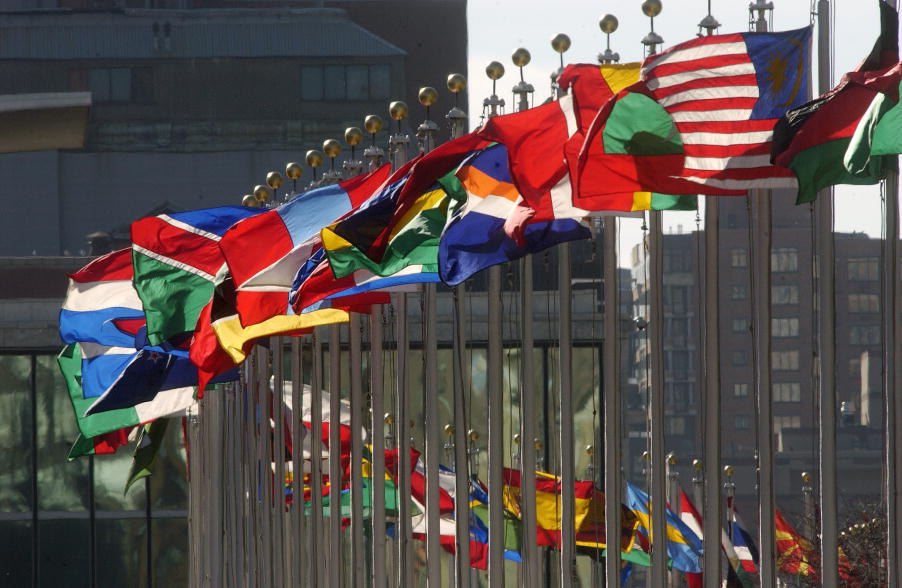At the end of March, more than 130 countries attended the first round of talks at the UN in New York to negotiate a nuclear ban treaty. The week-long series of meetings was an opportunity for member states to discuss what measures they would like to see included in the ban treaty.
A draft treaty text will be circulated in late May or early June. A second round of negotiations will be begin on June 15th and it is expected that the treaty text will be agreed by the time the negotiations conclude on July 7th.
None of the nine states which possess nuclear weapons attended the talks, but the UK, US and France held a press conference outside the talks to state their opposition. They were accompanied by representatives from Albania and South Korea. The British Ambassador Matthew Rycroft repeated the UK government line that they "do not believe that those negotiations will lead to effective progress on global nuclear disarmament."
Inside the talks there was broad consensus from participating states on the basic elements of the treaty, such as banning the possesion, development and transfer of nuclear weapons. On areas such as the financing and transit of nuclear weapons there was less consensus, and there was disagreement over whether nuclear testing, which is banned under the Comprehensive Test Ban Treaty, should also be covered.
There were also divergent views on what approach the treaty should have towards nuclear weapon states who might wish to join the treaty in the future. While some states were in favour of stipulating a process of stockpile destruction and verification in the treaty, others thought it was better not to address the issue at the present time. If stockpile destruction and verification are not included in the treaty, arrangements could be set out in a later protocol to the treaty or negotiated with a nuclear weapons state when they were ready to become a signatory.
